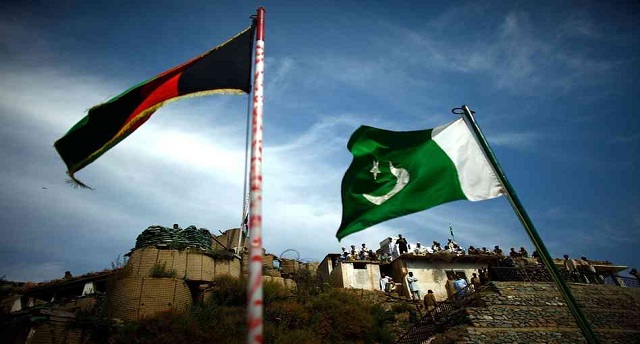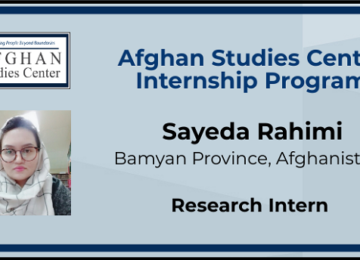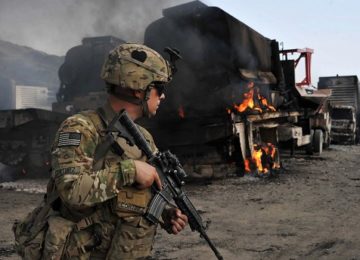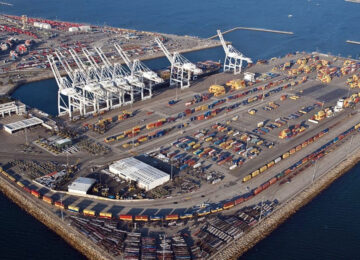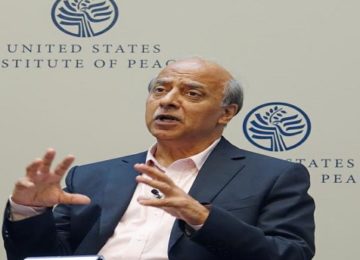A new government in Pakistan, the revival of United States (US)-Pakistan high-level contacts and the consensus on the Afghanistan-Pakistan Action Plan for Peace and Solidarity (APAPPS) have generated a new optimism as far as the search for peace in Afghanistan is concerned.
This consensus resonated at the fourth meeting held on Thursday under the Centre for Research and Security Studies’ (CRSS) Beyond Boundaries Pak-Afghan Track 1.5/11.
The visiting delegation from Afghanistan comprised Office of Afghan Chief Executive Officer Trade Advisor Mozammil Shinwari, Member of Parliament Khalid Pashtoon, former Rural Rehabilitation and Development minister Jarullah Mansoori, Sayed Qutbuddin Roydar, former governor of Nangarhar Saleem Khan Kunduzi, Pakistan Afghanistan Joint Chamber of Commerce and Industries (PAJCCI) Vice President Mohammad Younas Momand and senior Afghan journalist Aneesur Rahman Shinwari.
Chief guests in the panel included Afghan Deputy Head of Mission Zardasht Shams, Ministry of Foreign Affairs Additional Secretary Muhemmed Aejaz, Afghan Political Councilor Rahimullah Qutra, Asia Center USIP Vice President Moeed Yusuf and SDPI Deputy Executive Director Dr Vaqar Ahmed.
Members from Pakistan included Senator Sherry Rehman, Shazia Marri, Federal Tax Ombudsman Dr Shoaib Suddle, Lt General (r) Asif Yasin Malik, former ambassador Mohammad Sadiq, former ambassador Seema Ilahi Baloch, former ambassador Mian Sanaullah and Pakistan-Afghanistan Joint Chamber of Commerce and Industry (PAJCCI) Executive Director/Secretary General Faiza.
In a joint statement, they stated that Prime Minister (PM) Imran Khan’s victory speech highlighted the government’s vision for strengthened Pak-Afghan relations; showing the renewed importance the premier gives to Afghanistan. Pakistan and Afghanistan, for the first time in history, have institutionalised their working relationship under APAPPS. The presence of this very crucial framework provides both countries with the ground to move forward.
Foreign Minister (FM) Shah Mahmood Qureshi is also set to fly to Kabul soon in this connection.
They were of the view that there has been an exchange of several positive messages between both the countries in recent days. The general understanding is that the new civilian government and military in Pakistan are on the same page, which raises more hopes in Kabul, regarding the bilateral relationship, as well as the Afghan peace process.
The new government in Islamabad will take some time to settle following which Kabul and Islamabad may fully operationalize the APAPPS framework.
Furthermore, members of the Pakistan-Afghanistan Joint Committee at the meeting stated that both regional and global security dimensions are changing rapidly. In this scenario, Pakistan and Afghanistan are no different.
Both of these countries, too, are trying to keep up with the expeditiously unfolding nuances, but there have been significant developments which bode well for the peace and prosperity in both countries. First, the military operations inside Pakistan have gone down to a minimum, signaling a better security situation.
Second, once the buffer-zone and poorly governed, Federally Administered Tribal Areas (FATA) is now merged with Khyber Pakhtunkhwa, leaving a little space for unwanted activities.
Third, border management and trade linkages between the two neighbours are seeing signs of improvement. Furthermore, CPEC has the potential to be a game changer if extended to Afghanistan, paving way for sustainable economic development.
Moreover, it is after a long time that the figures of bilateral trade are looking pretty good; the trajectory is showing an upward trend. Afghanistan has also moved up to the top five export destinations for Pakistan in the first quarter of this fiscal year.
Customs officials across the border are also meeting regularly. Moreover, steps have been taken to facilitate the transactions for Afghan businessmen to trigger economic activity from across the border and vice versa.
On the issues of refugees, APAPPS appears to be the most relevant platform to sort out the issues regarding them. Nonetheless, repatriation should be voluntary and dignified. Refugees coming from Pakistan are very happy; the Afghan Government and the people, both acknowledge the hospitality from Pakistan side over the years.
Mobility of refugees’ assets, however, is a problem which needs to be looked into and dealt with. Refugee issue should not be used as a card in a political bargain, rather it should be considered as a humanitarian issue.
The speakers at the meeting urged the need for practical steps now onwards. All the participants present in the huddle hoped that bilateral relations would take off in the wake of the new government in Afghanistan.
The wait now is for the new government in Islamabad to formally shake hands with Kabul and kick-start operationalising APAPPS in a comprehensive manner.
Despite having some concerns, Pak-Afghan delegates pressed for the continued progress, stating that APAPPS has been an outcome of goodwill and leadership with a positive frame of mind on both sides which should continue.
Originally Posted on Pakistan Today.



